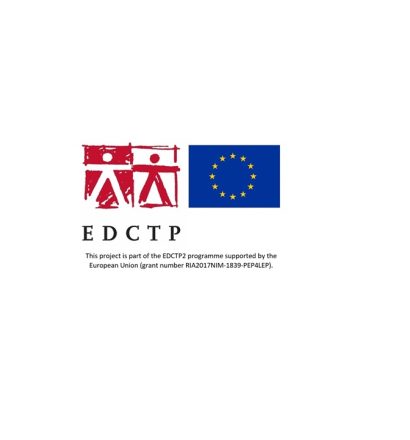Newsletter PEP4LEP – May 2024
This is a special edition of our newsletter because two projects are now included: PEP4LEP & PEP4LEP 2.0.
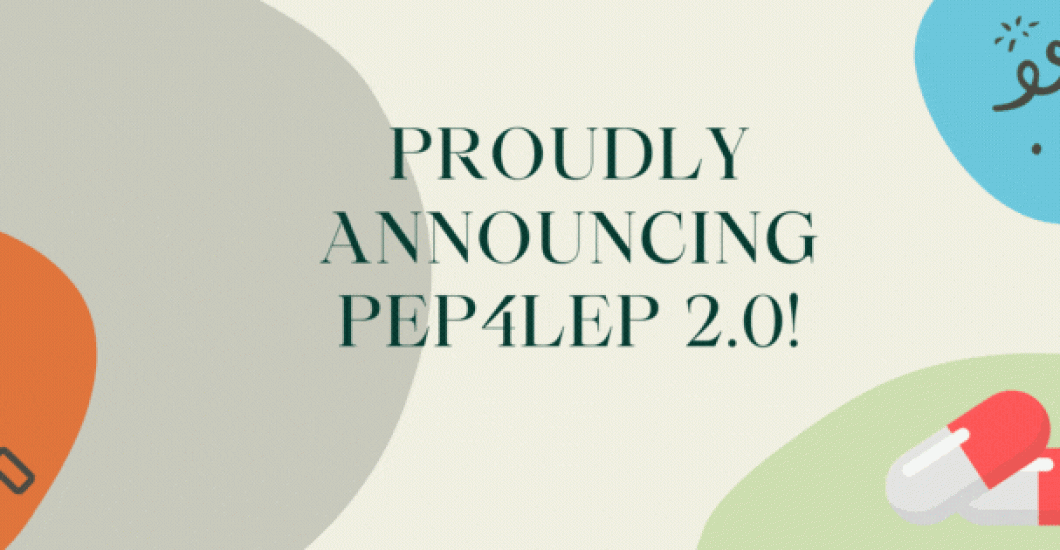
We are excited to share that we have obtained an additional grant from the Global Health EDCTP3 Joint Undertaking (Global Health EDCTP3) to continue our PEP4LEP activities and address newly emerged scientific questions! The new project, PEP4LEP 2.0, has officially started on the 1st of April 2024, and will continue until the end of March 2026. PEP4LEP 2.0 aims to contribute to the objectives of the original PEP4LEP project. In addition, we aim to understand and overcome the effect of the COVID-19 delays and assess the long-term impact of both interventions using mathematical modelling. The first PEP4LEP 2.0 consortium meeting has been held at the end of last month. We are grateful for this opportunity and look forward to continue our work.
Similar to the original PEP4LEP project, where Dr. Liesbeth Mieras served as the international principal investigator (PI), we also have a female international PI for PEP4LEP 2.0: Dr. Kidist Bobosha, from The Armauer Hansen Research Institute (AHRI) in Ethiopia.
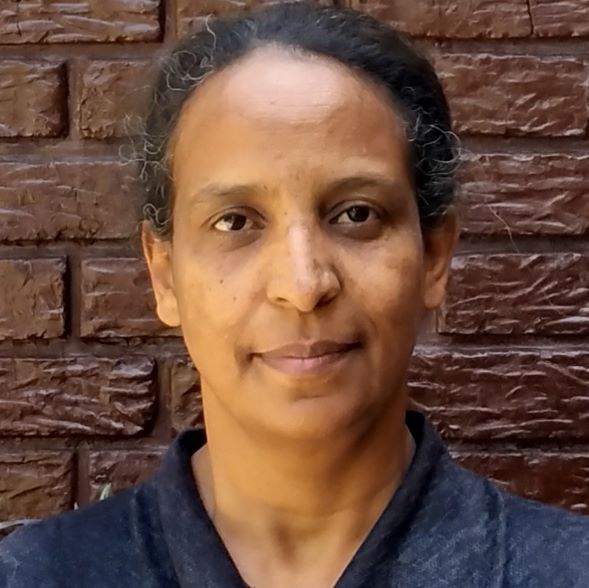
Kidist's insights on both PEP4LEP and PEP4LEP 2.0
In the past few years, PEP4LEP has been efficient in generating data on the feasibility and acceptance of two approaches to administer SDR: Skin camp and Health centre-based methods. Through this effort, thousands at risk of leprosy have received SDR, substantial number of hidden cases have been detected, and many skin diseases at the study sites have been detected. Despite the challenges posed by COVID-19, a lot has been achieved. We are all excited to receive two years of support through Global Health EDCTP3 for PEP4LEP 2.0, and I am confident that the team will work diligently to meet and exceed expectations.”
Country updates
Data collection is ongoing in the three implementing countries: Ethiopia, Mozambique, and Tanzania. Since the start of PEP4LEP, our study has included a total of 20,371 contacts of leprosy index patients in all implementing countries. These contacts underwent screening for leprosy and other skin diseases. We successfully identified 9,245 people (45% of all enrolled contacts) with skin diseases other than leprosy, as well as 270 leprosy patients. In total, 18,314 eligible contacts have received a single dose of the antibiotic rifampicin for leprosy prevention.
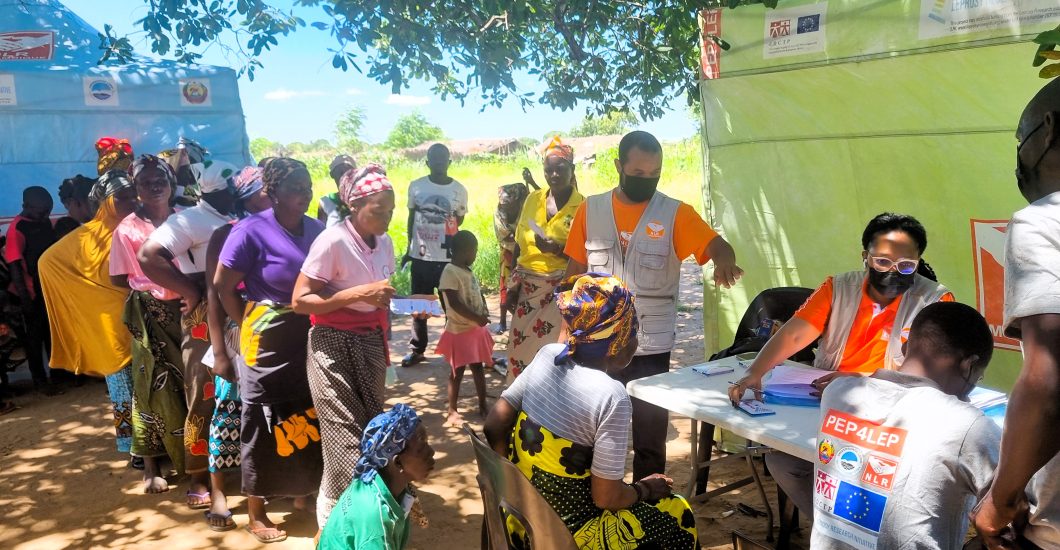
Ethiopia
To date, the team in Ethiopia has organised a total of 71 skin camps, in which 6,777 contacts received chemoprophylaxis for leprosy. In addition, 190 contacts have been enrolled and screened through the health centre intervention. In the first quarter of 2024, the team focused on entering data in the data management system and conducting supervision visits to the participating health facilities. Field activities were temporarily scaled down over the past months, due to staff turnovers and Ramadan. The team is currently recruiting new staff members for the PEP4LEP 2.0 project, after which field activities will restart.
Tanzania
The Tanzanian team is making progress in reaching their PEP4LEP targets. To date, they have organised a total of 79 skin camps (88% of the original PEP4LEP target), through which they enrolled and screened 8,224 contacts. For the health centre intervention, a total of 575 contacts have been included over the course of the PEP4LEP project. In the first quarter of 2024, the team enrolled and screened 163 contacts in the skin camp intervention, and 19 contacts in the health centre intervention.
Mozambique
Last year, Mozambique faced shortages of rifampicin. Fortunately, the country team managed to obtain new rifampicin at the start of 2024, allowing project activities to resume again after a project pause. Since the start of the PEP4LEP project, they have included a total of 4,605 contacts in both interventions. During the first quarter of 2024, 353 contacts were enrolled and screened in the community intervention, while 32 contacts participated in the health centre intervention.
It was the first time for Banú Famune, PEP4LEP research assistant in Mozambique, to help organizing skin camps. She shares her experiences:
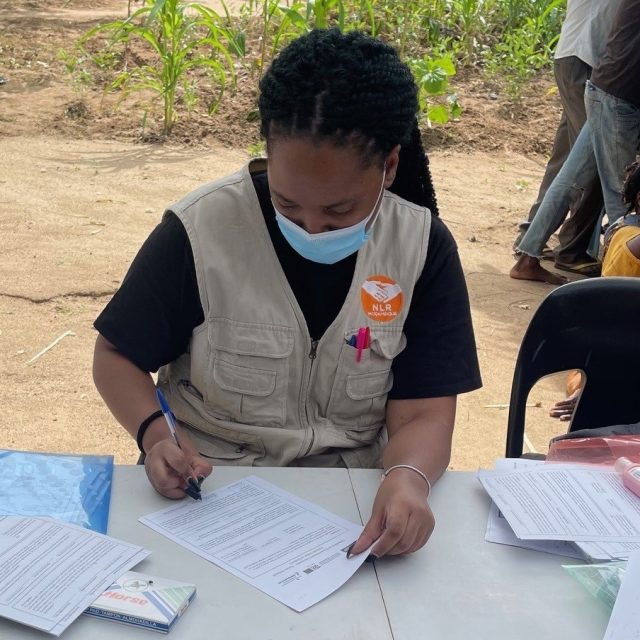
Banú Famune working on data collection forms in a skin camp in Mozambique. Photo by Pedro Benjamim.
“Participating in the skin camp I realized the difference we are making. From the office it is sometimes difficult to see this, so working directly in the community was an unique experience. A point of reflection: after understanding the importance, many participants asked when we would return, because they would like other family members and neighbors to participate as well. So we realized that we were able to convey the importance of prophylaxis with rifampicin.”
LRI Spring Meeting 2024 & Scientific writing workshop
On 17-19 April, the Leprosy Research Initiative (LRI) Spring Meeting took place in Eindhoven, the Netherlands. This was a great opportunity to learn from fellow researchers, and to share the progress of the PEP4LEP project! Ephrem Mamo, PhD student in the PEP4LEP project in Ethiopia, did an amazing job presenting to an international audience, consisting of almost 100 experts working in the leprosy and NTD field.
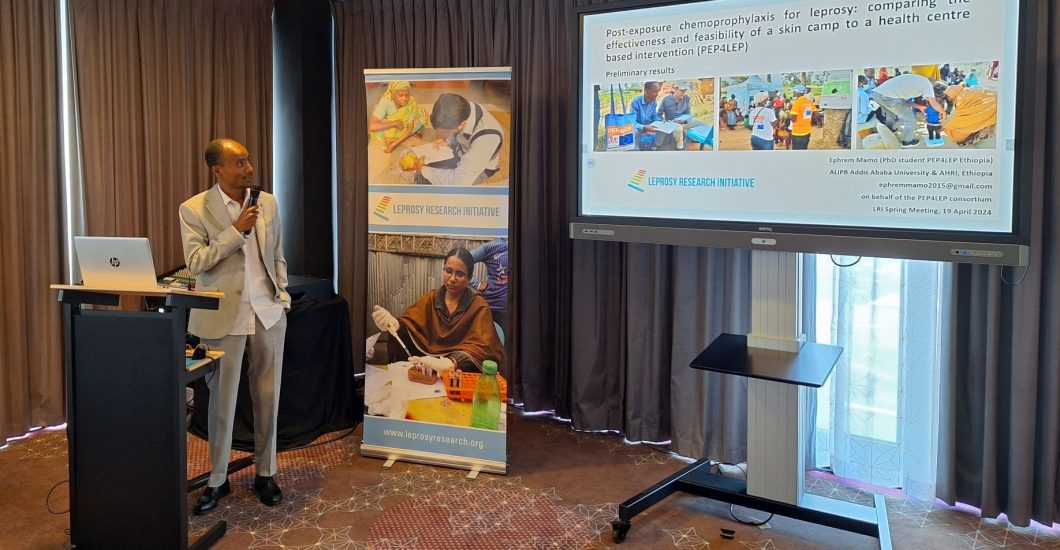
After the Spring Meeting, a scientific writing workshop for early career researchers from nine leprosy endemic countries was hosted in which Ephrem also participated. Ephrem reflected on his experiences in Eindhoven: “During the LRI Spring Meeting, I presented the preliminary findings of the PEP4LEP study on behalf of the PEP4LEP consortium. It was a great opportunity to share lessons learned from PEP4LEP and to learn from other research projects working on leprosy and other NTDs. During the workshop on scientific writing, I gained knowledge and writing skills and had the opportunity to receive valuable feedback and mentorship from a senior leprosy researcher. By the end of the workshop, my manuscript had significantly improved. I also had the opportunity to share my publication experience with junior researchers. I truly enjoyed both programmes and want to express my gratitude to the LRI Spring Meeting and Workshop organizers.”
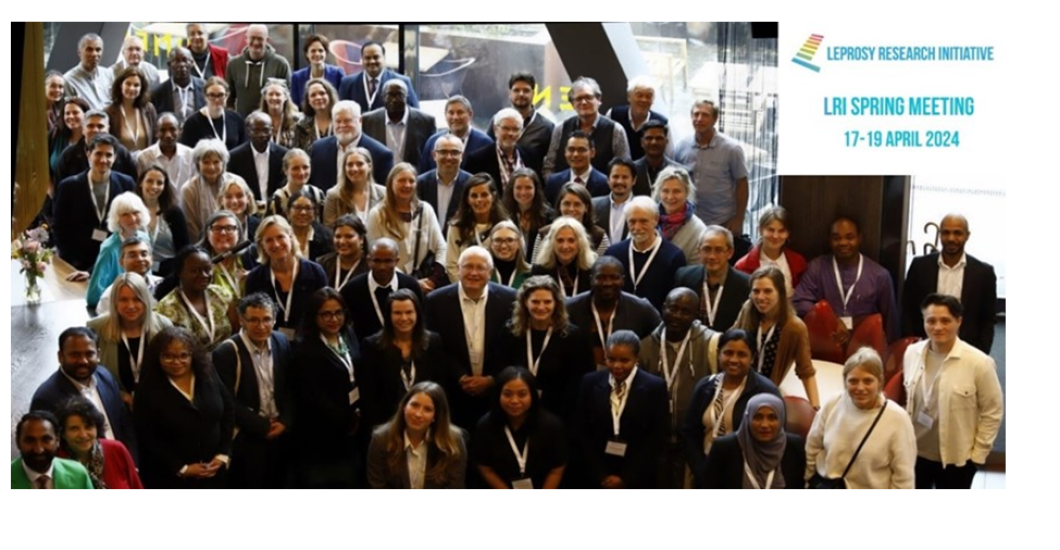
It was great to see that Lara Pandya, as representative of EDCTP (PEP4LEP’s main funder), and a delegation of the World Health Organization’s NTD Team and Global Leprosy Programme also attended and presented their work at the Spring Meeting.
Lara Pandya, Strategic Partnerships (North) and Communications Manager at EDCTP, shared: “I was delighted to attend the LRI Spring Meeting again this year and appreciated the opportunity to present on the collaboration between EDCTP and LRI and hear about the latest developments in the leprosy research field. It was gratifying to see the interest generated by Ephrem Mamo’s excellent presentation on the preliminary findings of the EDCTP/LRI co-funded PEP4LEP project, and we look forward to seeing the project come to a successful conclusion. Congratulations to LRI on an informative and engaging event and to the PEP4LEP Consortium for being selected as one of six high-impact projects to be showcased during the ‘Highlights of LRI Spring Meeting”
On May 30th, LRI is organizing the online event ‘Highlights of LRI Spring Meeting’, where six high-impact LRI projects are showcased. We are proud to announce that the PEP4LEP presentation from Ephrem is selected for this online session! The event is open to everyone interested in leprosy research and participating is free-of-charge. To register your interest in the event, please complete the registration form. Feel free to share the link with your colleagues.
Suzan Trienekens, Coordinator of LRI, also reflected on the succesful meeting: “We look back on an energising Spring Meeting with participants from over 25 countries and across research disciplines. It has been great to hear the progress and findings of the multi-country PEP4LEP project which sparked lots of interest and discussion. We look forward to seeing the presentation at the Highlights of the LRI Spring Meeting event, and amplify the reach of the project’s impact. In addition, it was our pleasure to support Ephrem in strengthening his scientific writing skills and we eagerly await the upcoming publications on PEP4LEP, which we will gladly share further with the wider scientific community.”
More reflections on the LRI Spring Meeting can be found at the LRI website.
Portuguese version of NLR’s SkinApp updated
The Portuguese version of the NLR SkinApp has been updated. Similar to the English version, it now includes new conditions such as keloid scar and folliculitis. The Portuguese version is no longer a standalone app but has been integrated into the general NLR SkinApp.
Users of the English version of the NLR SkinApp can simply update the app. Users of the old Portuguese app should first delete the app from their phone or tablet and download the new version from the Google Play Store or Apple App Store. After updating or downloading the app, users can choose either English or Portuguese as the display language.
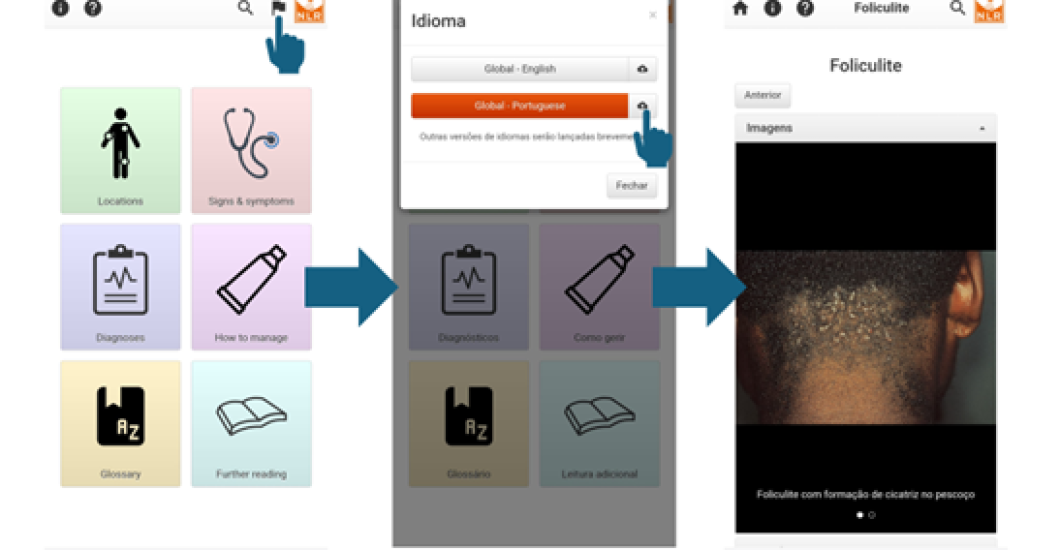
PEP4LEP questionnaire now used in Indonesia!
The leprosy case detection delay (CDD) questionnaire developed for PEP4LEP has been translated and adapted for use in Indonesia by Dr. Yudhy Dharmawan. Case detection delay, a primary outcome of the PEP4LEP study, refers to the time between symptom onset and disease diagnosis. Assessing this delay is important because early detection allows for prompt treatment, which can prevent complications, reduce transmission, and improve overall patient outcomes.
When administered to Indonesian leprosy patients, the contextualized CDD questionnaire revealed a mean diagnosis delay of 13 months, shorter than delays found in Ethiopia, Mozambique, and Tanzania (ranging from 22 to 28 months). We are pleased to see the successful utilization of this PEP4LEP tool in other countries! Click the links for more information on tool validation and CDD assessment results in Indonesia.
PEP4LEP publications
Great news: the PEP4LEP consortium published a new scientific paper! This recently published study tested the role of the NLR SkinApp in supporting frontline health workers to diagnose and treat skin diseases.
Read the article here:
Mwageni N, van Wijk R, Daba F, Mamo E, Debelo K, Jansen B, Schoenmakers A, van Hees CLM, Kasang C, Mieras L, et al. The NLR SkinApp: Testing a Supporting mHealth Tool for Frontline Health Workers Performing Skin Screening in Ethiopia and Tanzania. Tropical Medicine and Infectious Disease. 2024; 9(1):18. https://www.mdpi.com/2414-6366/9/1/18
PEP4LEP is named as capacity strengthening example in a recent publication in Leprosy Review. This article is a description of the NNN Leprosy Disease Specific Working Group session in which Dr. Anne Schoenmakers shared successes and lessons learned from the PEP4LEP project.
Fenenga C, Warne G, Geutjes R. Experience and evidence building on effective innovative integrated capacity strengthening-Results from the NNN Leprosy Disease Specific Working Group session 21st September 2023. Leprosy Review. 2024 Mar 1;95(1):124-9. https://leprosyreview.org/article/95/1/20-24005
PEP4LEP goodbyes
We would like to thank Dr. Marega Abdoulaye for his contributions to PEP4LEP as researcher and medical doctor. A great result of his work was the PEP4LEP baseline study in Mozambique which was published in Leprosy Review.
We would also like to thank Fufa Daba for his excellent work as a research assistant in Ethiopia. He made significant contributions to organizing skin camps and managing research data, and he also shared his experiences from the skin camps by sharing vlogs with the consortium!
Other announcements from the leprosy field
- On 5 May, the WHO Global report on neglected tropical diseases 2024 was published, which describes the progress towards the 2023 targets set in the NTDs road map. The full document can be found here.
- There are several upcoming events in the leprosy and NTD field:
- On 30 May, 2024 – 14:00 to 16:30 CEST: Highlights of LRI Spring Meeting, organised by the Leprosy Reasearch Initiative. More information about this free online event can be found here. To register your interest in the event, please complete the registration form, and you will receive the meeting link.
- On 1-3 October, 2024: NNN (Neglected Tropical Disease NGO Network) Conference. This year’s NNN is taking place in Kuala Lumpur, Malaysia, with the theme “Collaboration for Change: Fostering Global Equity and Strengthening Community Engagement in NTDs”. More information can be found on the NNN website.

